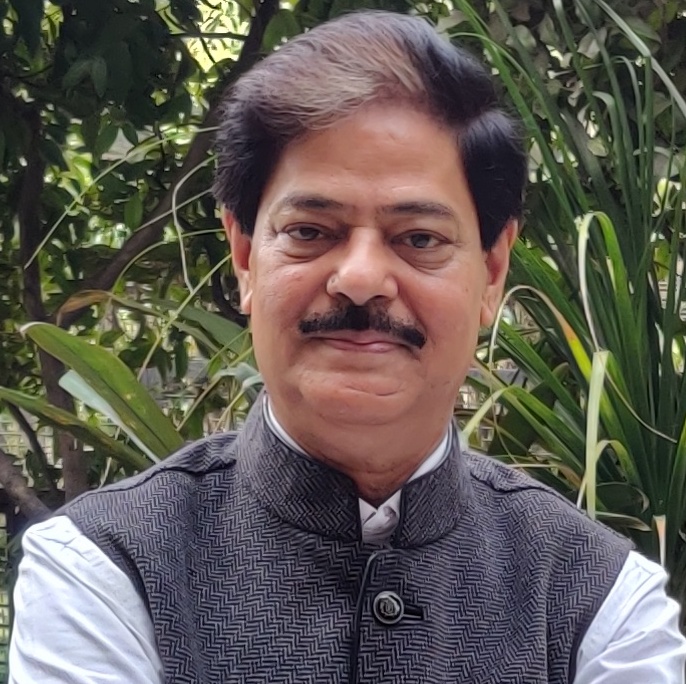In bureaucracy and outside, how to discover the inner strength and grow in the workplace
Perhaps it was Carlyle who said, “Give me a man who sings at his work.” Fatigue, or more simply lack of interest in the assigned work or office environment, is common. This happens perhaps because we do not question ourselves or introspect. Do we have an attitude where a humbler existence is felt owed to certain duty vested in us that empowers us to be useful to others? The question to ask is whether the purpose of life is only to earn a livelihood. Living would be earned somehow but would be devoid of substance and meaning. Obtaining two morsels cannot be the objective of our life; it has a bigger meaning. How to see the bigger picture? What is it that is to be sought and reclaimed from countless competing elements clamouring for our attention?
The point that is being made here is that one has to take a call about one’s purpose of life and that determines one’s attitude to work and what would be the quality of output as also the shape of deliverables. Besides, there is constantly an issue of right and wrong and occasionally even between two rights, and also how far should an employee go in the discharge of his official duties. The real difficulty is coming face to face with a dilemma and not knowing the way to proceed. It is not easy to find an answer to this question without serious self-reflection. But the exertion to reach that level is worthy of consideration. It is required not only idealistically but also practically to obviate the law of diminishing returns from applying to governance issues.
There are conditions that can only be attained by a supra-consciousness and by rising to a level of inspiration that can help in finding the real meaning of life. The framework provided by David Osborne and Ted Gaebler in ‘Reinventing Government’ (1992) prescribes that the reinvention process is most likely to be achieved by five strategies, cogently categorised as ‘Core’ (clarity of purpose, role and direction), Consequence (incentive for performance), Customer (accountability to customers, i.e. citizens), Control (employee and community empowerment), and Culture (changing the habits, hearts and minds of employees) Strategies (five ‘Cs’). It gives a deep understanding of what works and what does not. We are thus talking of developing a different work culture.
Eckhart Tolle, commenting about his own book, ‘A New Earth: Awakening to Your Life’s Purpose’, makes a very significant statement, “…it can only awaken those who are ready.” Thus it is entirely up to us as to how much we take from our experiences. The idea is to undertake a journey of the ‘self’ through the mesh of myriad fears and predilections, and yet be able to discover a life that gives a meaning; a sense that involves self-actualisation for aiming at and attaining higher goals. That alone could be the real takeaway lesson in a journey towards internalisation of one’s life and experiences. A higher level of consciousness is therefore desirable as well as attainable. We need to develop a vision to strive for excellence, not in a narrow, selfish sense but in a broader sense, to be able to give to others the best possible or at least what we expect to get from others.
Men and women would not succeed unless a vision is created, a vision with inner strength and endowed with purpose and meaning that would enable them in steering the processes. Supervision in government departments should be such that it does not create bottlenecks in the workflow. Something forced upon by others or by circumstances does not give the same result. The employees who do not work at optimum levels are those who have the work thrust upon them. Creating ownership is, therefore, of paramount importance. Once they take psychological ownership in the work situation, thereby manifesting entrepreneurial traits, effects will transform – an entrepreneur is one who uses his resources to maximise efficiency and effectiveness. The need is to discover the fibre within and strengthen it, so as to seek fulfilment through psychological ownership of the organisation. Discovering this fibre has to be a key deliverable in any training programmes for officers.
The focus should be to put the citizen at the centre. Mahatma Gandhi’s talisman must be considered the best prescription for attaining this objective. Rules, institutions, offices are for addressing the needs of people. Once divested of that centricity they lose their meaning. Hence the endeavour should be to draw the officials to this approach. The mindset needs to undergo an alteration. Luckily there is a change filtering into the system through the mechanisms of e-governance and legal requirement of the Right to Information Act. Our role would be to strengthen this move towards transparency and accountability along with result-oriented outcomes by encouraging thinking and self-reflection.
